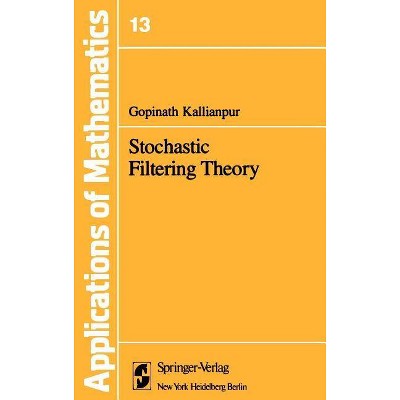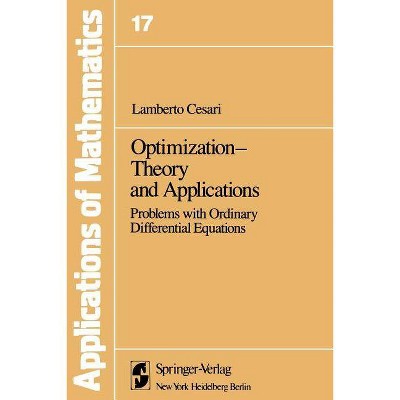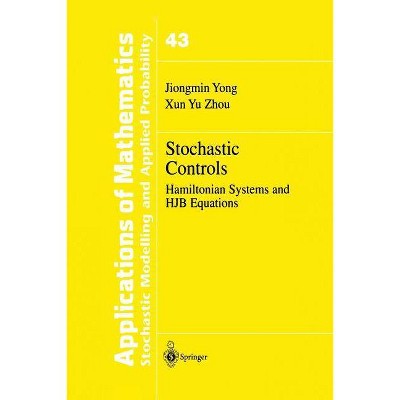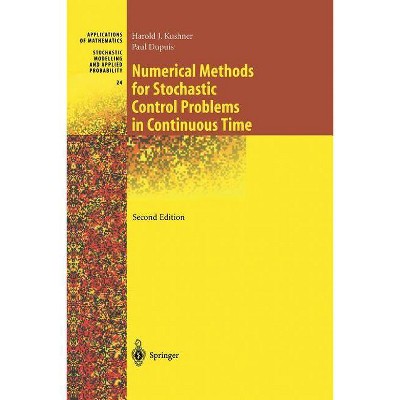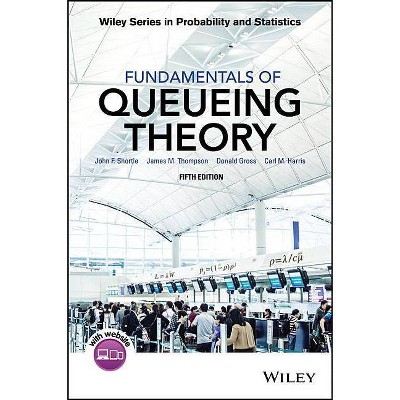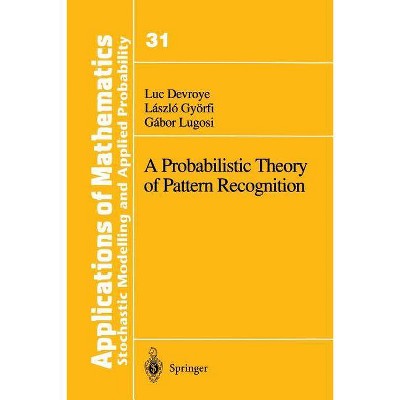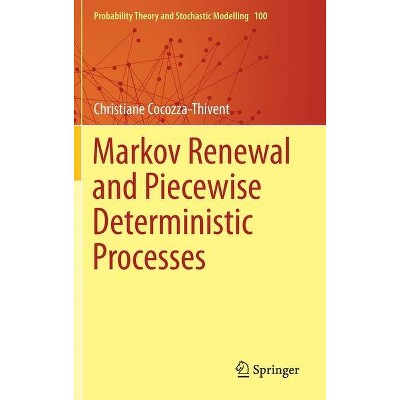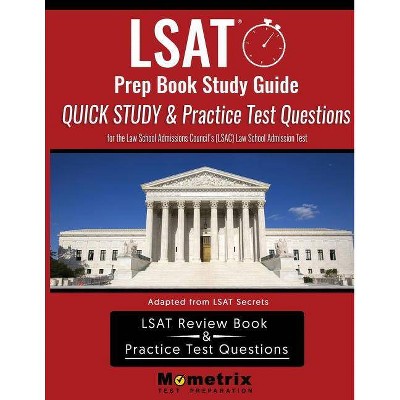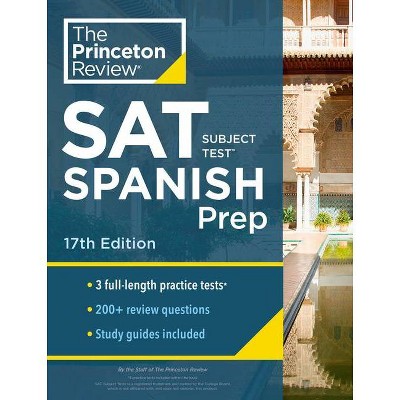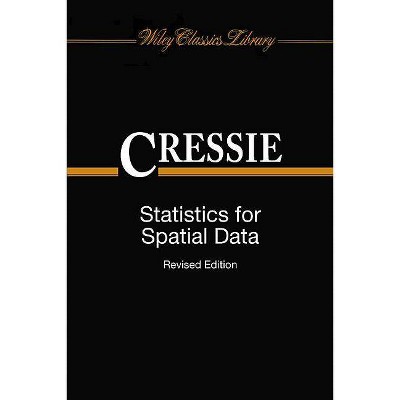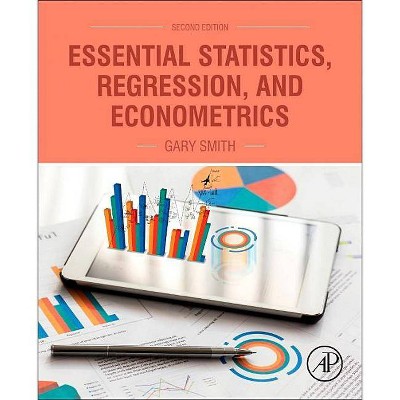Elements of Queueing Theory - (Stochastic Modelling and Applied Probability) 2nd Edition by Francois Baccelli & Pierre Bremaud (Hardcover)
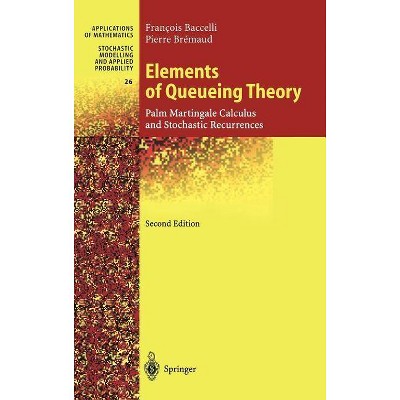
Similar Products
Products of same category from the store
AllProduct info
<p/><br></br><p><b> About the Book </b></p></br></br>Presenting the mathematical foundations of the theory of stationary queuing systems, the Palm theory and the Loynes theory, this extensively revised second edition adds substantial material - mainly exercises and their solutions - to a classic reference.<p/><br></br><p><b> Book Synopsis </b></p></br></br>Queueing theory is a fascinating subject in Applied Probability for two con- tradictory reasons: it sometimes requires the most sophisticated tools of stochastic processes, and it often leads to simple and explicit answers. More- over its interest has been steadily growing since the pioneering work of Erlang in 1917 on the blocking of telephone calls, to the more recent applications on the design of broadband communication networks and on the performance evaluation of computer architectures. All this led to a huge literature, articles and books, at various levels of mathematical rigor. Concerning the mathematical approach, most of the explicit results have been obtained when specific assumptions (Markov, re- newal) are made. The aim of the present book is in no way to give a systematic account of the formulas of queueing theory and their applications, but rather to give a general framework in which these results are best understood and most easily derived. What knowledge of this vast literature is needed to read the book? As the title of the book suggests, we believe that it can be read without prior knowledge of queueing theory at all, although the unifying nature of the proposed framework will of course be more meaningful to readers who already studied the classical Markovian approach.<p/><br></br><p><b> From the Back Cover </b></p></br></br><p>The Palm theory and the Loynes theory of stationary systems are the two pillars of the modern approach to queuing. This book, presenting the mathematical foundations of the theory of stationary queuing systems, contains a thorough treatment of both of these.</p> <p>This approach helps to clarify the picture, in that it separates the task of obtaining the key system formulas from that of proving convergence to a stationary state and computing its law.</p> <p>The theory is constantly illustrated by classical results and models: Pollaczek-Khintchin and Tacacs formulas, Jackson and Gordon-Newell networks, multiserver queues, blocking queues, loss systems etc., but it also contains recent and significant examples, where the tools developed turn out to be indispensable.</p> <p>Several other mathematical tools which are useful within this approach are also presented, such as the martingale calculus for point processes, or stochastic ordering for stationary recurrences.</p> <p>This thoroughly revised second edition contains substantial additions - in particular, exercises and their solutions - rendering this now classic reference suitable for use as a textbook.</p><p/><br></br><p><b> Review Quotes </b></p></br></br><br><p>From the reviews: </p> <p>No doubt this textbook will further convince the queueing modeller of the essential importance of point processes and martingale technology.</p> <p>Paul Embrechts. <em>Short Book Reviews</em>, December 2003</p> <p>"This book is intended for graduate students and researchers in queuing theory and applied probability. ... Overall this is a well-written text that provides an interesting alternative to more classical approaches. ... The results on stability and other qualitative properties of queues provided by this framework are very general and show the power of this modern approach." (Charles Knessl, SIAM Reviews, Vol. 47 (4), 2005)</p> <p>"The mathematical treatment in the book is careful and thorough enough that it can be understood by anyone with a reasonable preparation in measure-theoretic probability. ... A particularly useful feature ... is the addition of exercises and problems ... . The strength of this book is the careful and rigorous treatment of the framework and of the mathematical tools that unify and derive classical results and formulae for a number of queuing networks. It can definitely be used as a text at an advanced level." (S. Ramakrishnan, Sankhya, Vol. 66 (2), 2004)</p> <p>"No doubt this textbook will further convince the queuing modeller of the essential importance of point process and martingale technology. Besides providing an elegant and broad theoretical foundation, the general results obtained allow for straightforward explicit calculations ... . The theory presented is non-trivial ... those who master it will be in the possession of a powerful tool with considerable potential for applied work. ... I take pleasure in recommending this text very highly." (P.A.L. Embrechts, Short Book Reviews, Vol. 23 (3), 2003)</p> <p>"I am convinced that this second edition will be welcomed in the same way by those who need a source for (comparable) easy access to point process methodology. It is well written, a clear presentation of the topics ... . I find its first edition useful as a reference and a source for new material. And in my view the second edition is clearly an enhanced revision of it. ... the book will be welcomed by everyone interested in the field." (Hans Daduna, Statistical Papers, Vol. 44 (3), 2003)</p><br>
Price History
Price Archive shows prices from various stores, lets you see history and find the cheapest. There is no actual sale on the website. For all support, inquiry and suggestion messagescommunication@pricearchive.us
